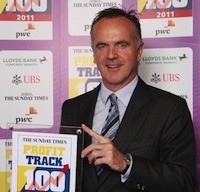Global PC shipments are expected to fall by -10.1% in 2013, slightly below the previous projection of -9.7%, and by far the most severe yearly contraction on record, according to the IDC Worldwide Quarterly PC Tracker. Interest in PCs has remained limited, leading to little indication of positive growth beyond replacement of existing systems.
Total shipments are expected to decline by an additional -3.8% in 2014 before turning slightly positive in the longer term. At these rates, total PC shipments will remain just above 300 million during the forecast - barely ahead of 2008 volumes. Even in emerging markets - a primary growth engine of the PC market - shipments are projected to decline in 2014 and recover by only a few percent during the forecast.
The commercial market is faring notably better than the consumer market in 2013 with shipments declining by -5% year over year compared to nearly -15% for consumer. The relative stability is due to a mix of more stable PC investment planning, a smaller impact from tablets, and to replacements of Windows XP systems before the end of support planned for 2014. However, the long-term outlook for the two markets is not significantly different, with a small decline projected for both consumer and commercial segments in 2014 with near flat growth in the longer term.
"Perhaps the chief concern for future PC demand is a lack of reasons to replace an older system," said Jay Chou, Senior Research Analyst at IDC. "While IDC research finds that the PC still remains the primary computing device - for example, PCs are used more hours per day than tablets or phones - PC usage is nonetheless declining each year as more devices become available. And despite industry efforts, PC usage has not moved significantly beyond consumption and productivity tasks to differentiate PCs from other devices. As a result, PC lifespans continue to increase, thereby limiting market growth."

 Redstone has secured a new sponsorship deal with reigning IBF middleweight champion Darren Barker.
Redstone has secured a new sponsorship deal with reigning IBF middleweight champion Darren Barker. A top sales performance combined with impressive growth and capabilities have ensured that Lily Communications bagged the Best Partner of the Year Award at Ericsson-LG's Global Partner Conference held in Thailand.
A top sales performance combined with impressive growth and capabilities have ensured that Lily Communications bagged the Best Partner of the Year Award at Ericsson-LG's Global Partner Conference held in Thailand. Chess has advanced its growth strategy and gained a firmer foothold in cloud territory following the acquisition of Microsoft Gold Partner The CRM Business. Chess CEO David Pollock sees the latest addition, the company's 12th acquisition this year, as a key strategic move.
Chess has advanced its growth strategy and gained a firmer foothold in cloud territory following the acquisition of Microsoft Gold Partner The CRM Business. Chess CEO David Pollock sees the latest addition, the company's 12th acquisition this year, as a key strategic move.